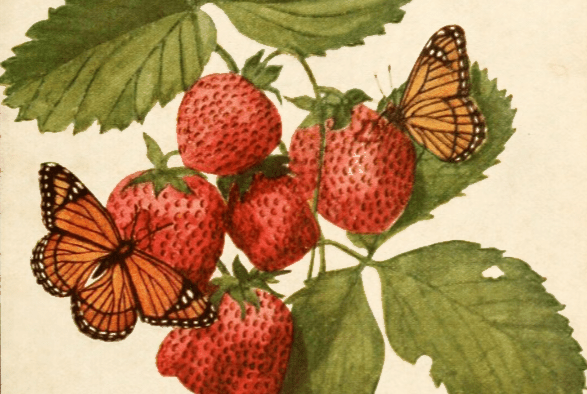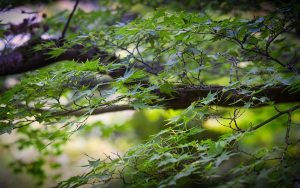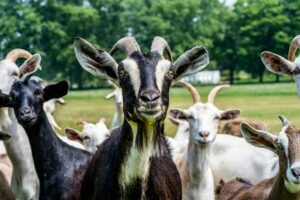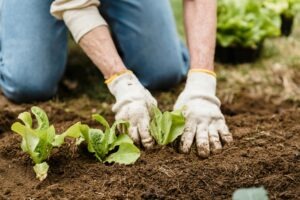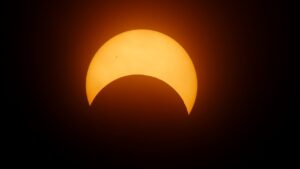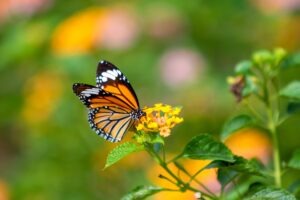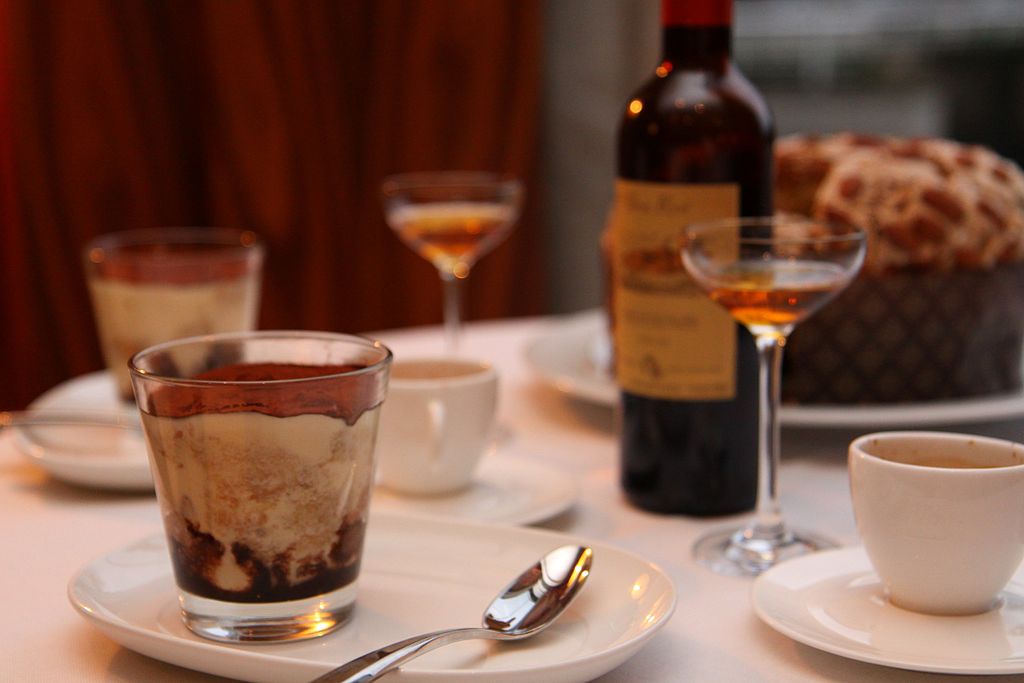
We love butterflies because they are beautiful, but these flying insects play a critical role in the environment as pollinators. That is, they convey pollen from one plant or part of a plant to another to allow reproduction.
And yet pollinator populations are on the decline around the world. If that doesn’t sound like a big deal, consider this: Of the 1,400 or so crop plants grown around the world, 75 to 80 percent require pollination by animals, including insects such as butterflies and bees.
“The vast majority of flowering plant species need pollinators to survive, which means the entire planet needs pollinators to survive,” says Director of Texas Plant Conservation Brooke Byerley Best.
To better understand the importance of pollinators, consider this question: if pollinators disappeared, what would it mean for our diet?
Wheat, rice and corn would be OK, as would sugarcane and sugarbeets. (These plants are able to pollinate themselves.) But think about what we would lose:
Fruits. Apples, peaches, blueberries, strawberries, lemons and limes all need pollinators. Bye, bye, apple pie and strawberry milkshakes.
Guacamole. Both avocados and tomatoes rely on pollinators. Corn chips suddenly sound less appealing.
Potatoes. Adios, french fries. And don’t try to substitute onion rings–no pollinators, no onions. Plus, without pollinators, you wouldn’t have mustard or ketchup for your burger, and your bun wouldn’t have sesame seeds.
Coffee. Without pollinators, you couldn’t get lattes, frappuccinos, flat whites or basic cups of joe.
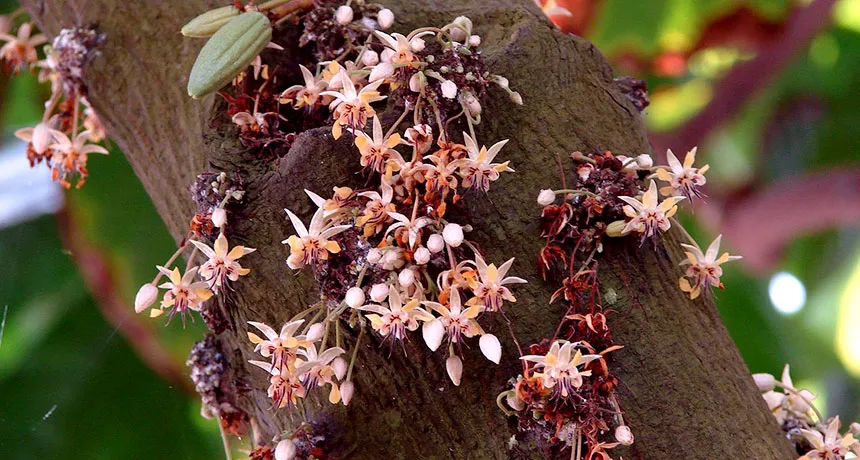
Wine. While most grapes can self-fertilize, pollinators are essential for cover crops, the plants grown around grapevines to keep the soil healthy. Adieu, pinot noir and chardonnay.
Chocolate. The cacao plant (Theobroma cacao) is pollinated exclusively by tiny insects called chocolate midges (various species in the Forcipomyia genus). No midges, no fudge.
If all that isn’t bad enough, we need plants to produce critical vitamins and minerals. “The majority of dietary lipids, calcium, fluoride, iron, carotenoids, lycopene, beta-cryptoxanthin, and the vitamins A, C, and E consumed worldwide come from crops that require pollinators,” according to the National Resources Defense Council.
So without pollinators, we would all have bad teeth and brittle bones, we might be anemic, we would definitely have scurvy, and we would be at higher risk for heart disease and cancer.
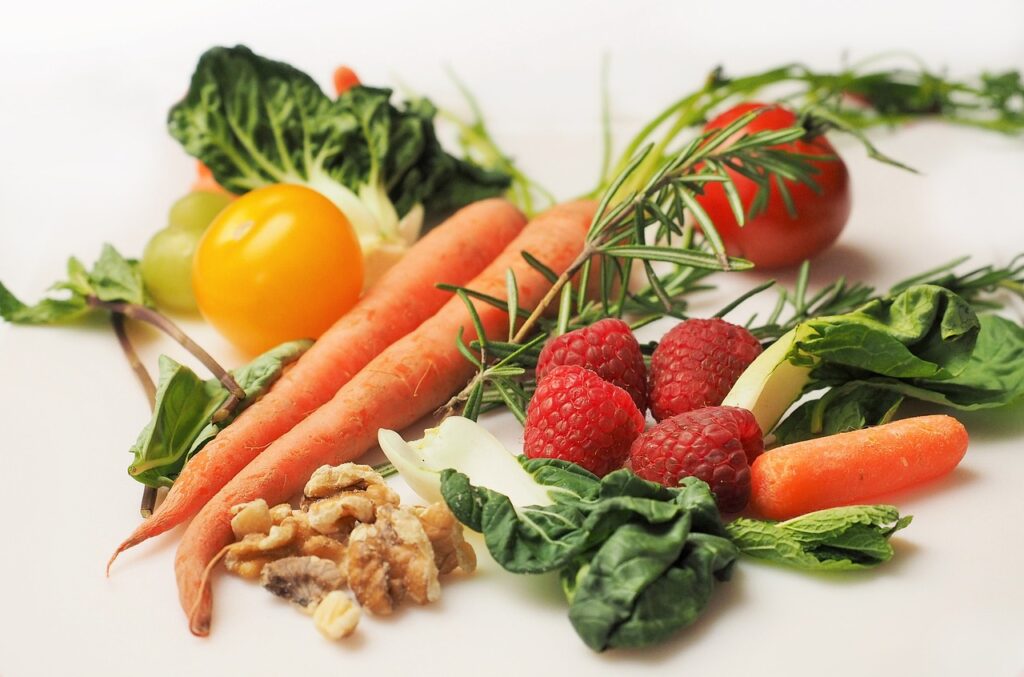
Of course, the situation is far more complicated than this. The entire global ecosystem relies on pollinators. Considering which foods we would lose is an intellectual exercise intended to make clear how essential pollinators are to life on earth.
Nevertheless, the impact of pollinator decline on the human diet is real. Recent research led by the Harvard University School of Public Health shows that declining pollinator populations have already decreased fruit, vegetable and nut production by three to five percent globally. This limits the availability of health foods while raising their cost, making it harder for people eat a balanced diet. Scientists estimate that 450,000 people die every year from what they called “lost healthy food consumption” including diseases associated with a poor diet such as heart disease, stroke, diabetes and certain cancers.
It’s not all bad news. Individuals have the power to help protect pollinators. Learn some simple steps you can take in this month’s Garden article, “Attract Butterflies to Your Garden with Plants for Pollinators.”
“It’s also important to remember the importance of these insects,” says Best. “We owe our lives to butterflies, bees and other pollinators.”

